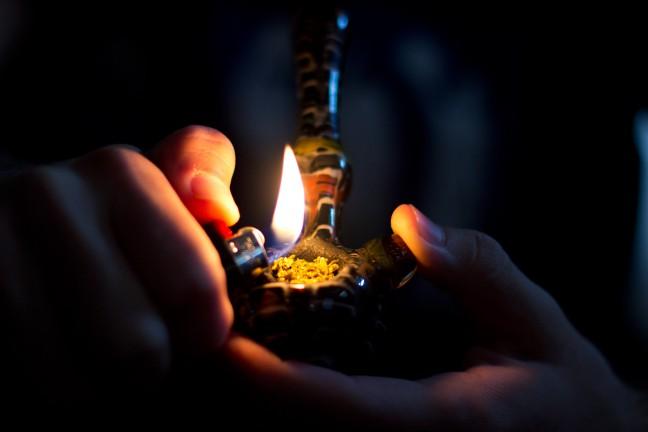With Illinois’ recent legalization of recreational marijuana on Jan. 1 and the Chicago Tribune reporting nearly $3.2 million in sales the first day, Wisconsin could face challenges at the borders and on the roads.
This could open the possibility for illegal transportation of marijuana across the border, as according to the Marijuana Policy Project, it remains illegal in Wisconsin on both recreational and medical fronts.
Lieutenant Anne Maxson from the Wisconsin State Patrol Waukesha Post, said the State Patrol has no plans to initiate border checks for drivers coming into Wisconsin. But, Maxson emphasized the drug is still illegal in Wisconsin and driving while high is considered driving while intoxicated.
“We’re going to be doing our same jobs as always,” Maxson said.
These recent legalizations could also lead to interstate tensions, especially when states who have legalized marijuana and states that have not share a border, Minority Caucus Vice Chair Senator Janis Ringhand, D-Evansville said. Michigan also joined the growing market, when sales began Dec. 1, 2019, according to the Marijuana Policy Project.
According to Ringhand, there is potential for people to bring marijuana illegally into Wisconsin through these shared borders. She affirmed that as marijuana is still illegal in Wisconsin, those who bring it across the border will likely be charged with illegal possession.
“[Interstate tensions] are possible — it’s a little too soon to say,” Ringhand said.
Cannabis legalization in other midwestern states could potentially have adverse influences on Wisconsin’s economy, too. According to an article by Patch, some Wisconsin business owners have already suggested they’re moving their businesses across state lines in order to take advantage of the legal marijuana market.
As those looking to purchase marijuana legally will have to look outside of Wisconsin, local residents may also cross state lines, taking their money with them to other states.
Representative Melissa Sargent, D-Madison said in a statement to Milwaukee Public Media that legalization could be detrimental to Wisconsin.
“Many of the Midwestern states surrounding us are either medicinal or full legalization- Illinois, Michigan and Minnesota. The industry is setting up in those communities and it’s going to have a negative impact on the state of Wisconsin,” Sargent said.
But, people crossing the border to legally purchase marijuana is not as predictable of a problem as may be suggested. A study in Colorado found that nonresidents only used about 9% of Colorado’s 208.6 metric tons of marijuana consumed in 2017. But, according to The Associated Press, Michigan marijuana retailers have already reported many of their customers being from Ohio and Indiana, where recreational marijuana is still illegal.
According to The Associated Press, Illinois Governor J. B. Pritzker recently pardoned more than 11,000 people convicted of low-level marijuana crimes in what he called “the first wave” of similar pardons. Illinois officials predict that there are about 116,000 convictions that are qualified to be pardoned under this new law.
Ringhand said she thought that it was a good move on Pritzker’s part, as it would expunge thousands of convictions from people’s records, potentially allowing them better access to jobs and higher education.
“I’m amazed at how many people there were that were affected by that,” Ringhand said.
Wisconsin Governor Tony Evers supported the legalization of medical marijuana while running for office, and according to his website, believes full legalization should depend on Wisconsin residents.
According to a survey conducted by Marquette University Law School in 2019, 59% of voters say recreational marijuana should be legal, while 36% oppose it. Furthermore, 83% believe that medical marijuana should be legal, while only 12% oppose it.
Despite surrounding states legalizing marijuana in some form, as well as public support, legalization in Wisconsin may be an uphill battle for Governor Evers, as the Republican party controls the state legislature.
Republican lawmakers have historically been against marijuana legalization, with Senate Majority Leader Scott Fitzgerald, R-Juneau having also previously voiced disapproval, according to reporting by the Milwaukee Journal Sentinel.
“I don’t support this plan and I think that it’s going to be a tough sell to a majority of my caucus,” Fitzgerald told the Journal Sentinel.


